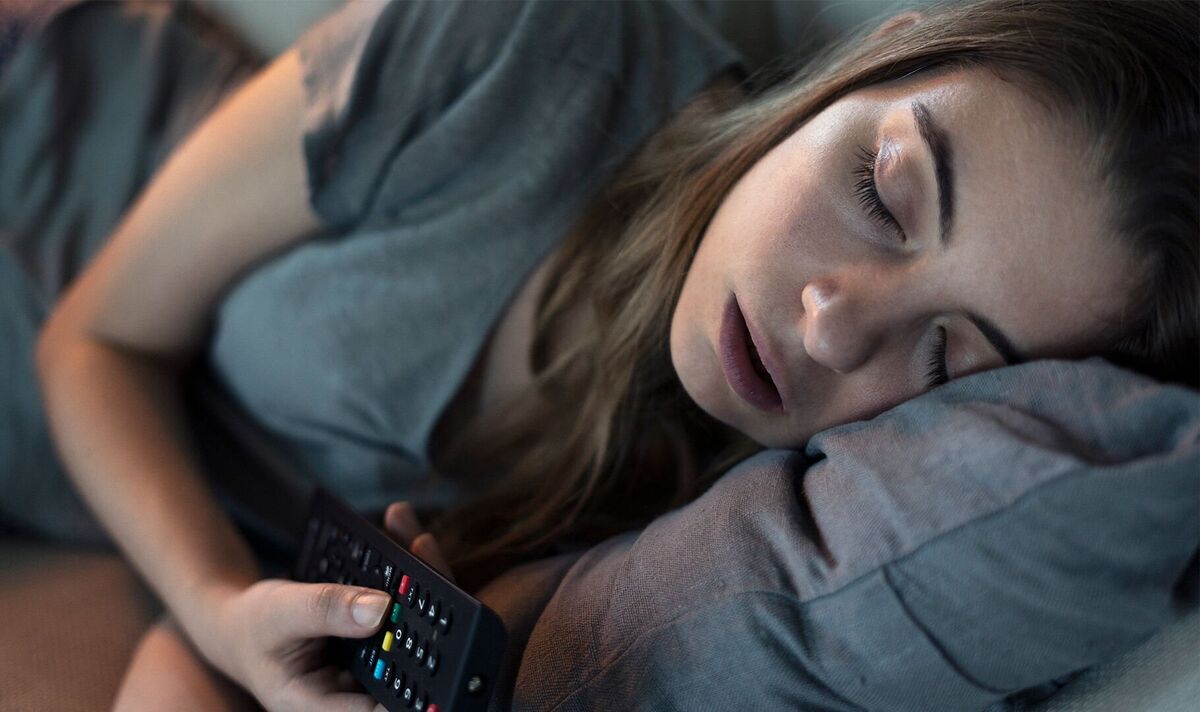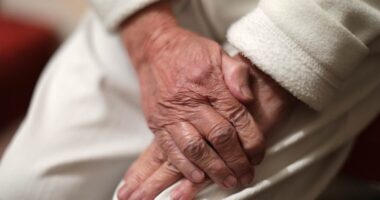When it comes to our overall health and wellbeing, having a good sleep pattern is vital. Regularly not sleeping enough can wreak havoc on our ability to function normally and even lead to health problems.
However, it is not just the quality and quantity of sleep that can have an impact. Research has revealed that the way in which you sleep can also make a difference.
According to a study, published in The Proceedings of the National Academy of Sciences (PNAS), there is one common bedtime habit many of us are guilty of that can leave you vulnerable to dangerous complications.
Scientists found that falling asleep in front of the TV, your laptop or phone could increase your risk for heart disease and diabetes.
More specifically, the team – from Northwestern University in Chicago – discovered that exposure to ambient lighting, which includes these screens, harms your cardiovascular function and increases your insulin resistance the following morning. This increases your risk of heart disease, diabetes and metabolic syndrome.
Study co-author and chief of sleep medicine at the university, Phyllis Zee, said: “The results from this study demonstrate that just a single night of exposure to moderate room lighting during sleep can impair glucose and cardiovascular regulation, which are risk factors for heart disease, diabetes and metabolic syndrome.
“It’s important for people to avoid or minimise the amount of light exposure during sleep.”
These results were true of sleeping with “dim” lighting but also with a brighter room light.
Therefore, the study authors recommend making sure your curtains or blinds are fully closed at night and purchasing blackout curtains if necessary.
Turning off all your lights before bed and wearing an eye mask were also advised.
The study also found that sleeping with a light on increases your heart rate and alertness.
Co-first author of the study, Daniela Grimaldi, said: “We showed your heart rate increases when you sleep in a moderately lit room.
“Even though you are asleep, your autonomic nervous system is activated. That’s bad.
“Usually, your heart rate together with other cardiovascular parameters are lower at night and higher during the day.”
To reduce your exposure to light at night the team recommended the following steps.
Turn off lights
Don’t keep lights on when you’re sleeping. The team advised: “If you need to have a light on for safety, use a dim light that is closer to the floor.”
Avoid white or blue light
Colour is important, according to the team. They said: “If you must have a light on, choose an amber, red or orange light, which is less stimulating for the brain.
“Don’t use white or blue light. And, keep it as far away from you as possible while you’re sleeping.”
Shield yourself from outside light
Use blackout shades or eye masks if you can’t keep light out of the room.
The team added: “Move your bed so outdoor light isn’t shining on your face.”
Previous scientific research has found similar results. One study from 2019 of more than 40,000 women found that falling asleep with the television on increased the risk of weight gain and obesity, which are linked to heart disease and diabetes.










